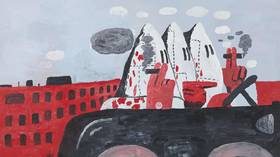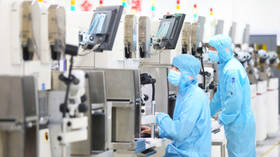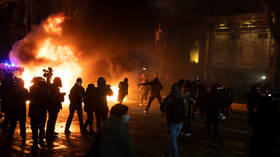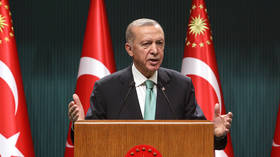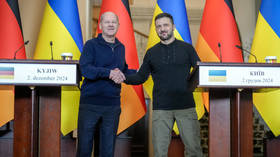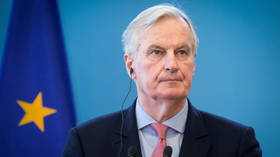Intimate & heart-wrenching: The compelling story of parents who cryogenically freeze their dead 2-year-old child
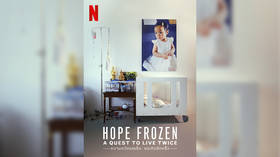
Netflix’s Hope Frozen documentary follows a family in Thailand that turns to science in their fervent desire that their daughter may one day live again. It is a surprisingly poignant portrait of familial love and grief.
In Hope Frozen: A Quest to Live Twice, filmmaker Pailin Wedel masterfully documents the compelling story of the Naovaratpong family, comprised of the father, Sahatorn, his wife Nareerat and their teenage son Matrix, who suffer the terrible loss of their beloved two-year-old daughter Einz from ependymoblastoma, a rare and aggressive brain cancer.
During Einz’s illness, her father frantically uses his science background (he is an engineer) to try and learn on the fly and discover a cure for his ailing daughter as she deteriorates.
After a dozen surgeries and 20 chemotherapy and radiation treatments, it becomes readily apparent that time is running out for little Einz. In response, Sahatorn then turns his attention to cryogenics, in the hope that he could freeze his daughter after death, in order to one day re-animate her when a cure for her disease is found.
Immediately following Einz’s heart-breaking demise, doctors from the Alcor Life Extension Foundation go about cryogenically freezing her. Once that process is completed, Einz’s body is sent from Thailand to storage in Arizona.
This story sounds like some bizarre science fiction, but Hope Frozen masterfully turns this strange tale into a morally and ethically complex story that is intensified by the emotional power of grief.
In addition, the film raises a plethora of profound philosophical questions, but to its credit it never presumes to know the answers.
The film ponders such matter as what is consciousness? Is consciousness attached to the body? Are memories kept intact when someone is cryogenically frozen? Is that frozen body really a person or just a collection of flesh and bones? Can death be scientifically defeated? Will cryogenics even work? Can people be re-animated in the future? Will a cure for cancer ever be found?
These questions are made even more complicated by the family’s fervent faith in science coupled with their spiritual belief in Buddhism. This results in the family grappling with issues such as will freezing Einz stop her from reincarnating? And is cryogenics just imprisoning Einz’s soul in a lifeless body?
Also on rt.com Stillborn comedy Unpregnant is a mess of a movie, but succeeds as a piece of pro-abortion propagandaThe most intriguing member of the Naovaratpong family is the son Matrix, a smart and sensitive young man haunted by his sister’s death.
At his father’s prodding, Matrix is a scientific genius who dedicates his life to finding a way to bring his sister back to life. Ever the big brother, he even becomes a novice Buddhist monk in an attempt to try and protect his dead sister’s soul.
Like his mother and father, Matrix will never shed the painful burden that is the death of Einz. The Naovaratpongs simply can’t let go of their daughter, of the dream of her future and of their grieving wound.
By cryogenically freezing Einz, the family freezes themselves into a perpetual state of hope and grief… this keeps Einz fresh in their minds. Their hope and grief are all they have left so they do not want to let them go. As long as hope for her return and grief for her loss are frozen in place, Einz lives on.
As the film progresses, the story takes on multiple twists and turns that makes for interesting viewing – particularly a scene where Matrix calls home after a trip to America – but the most fascinating part of the film is the love for Einz that is at the core of it.
You can question the family’s decision to cryogenically freeze their daughter and their quest to keep the hope of her alive in the face of death, I know I did, but what I never did was question the purity of their motives or the profundity of their love.
As a parent, it is impossible to watch Hope Frozen and not have compassion and empathy for Sahatorn, Nareerat and Matrix. Their love for Einz is exquisitely beautiful to witness even when it is wildly contorted by grief and despair.
The family’s devotion to science in the form of cryogenics in the hope of overcoming death is no different than any other faith taking center stage in an existential crisis. Faith is our shield against the slings and arrows of life and the inevitability of our own annihilation.
The Naovaratpongs wrap themselves in the cloak of science in order to maintain the illusion that Einz will rise from the dead, just as a Catholic like myself clings to that same delusion that death can be conquered through God’s love and power.
This need to believe in something, anything, to make the colossal pain of grief, and the terrifying prospect of the eternal abyss of death, subside, is all too human, and is strikingly highlighted in Hope Frozen.
This is a deeply moving documentary because it reminds us that life is fleeting and that love isn’t everything… it’s the only thing.
Think your friends would be interested? Share this story!
The statements, views and opinions expressed in this column are solely those of the author and do not necessarily represent those of RT.





